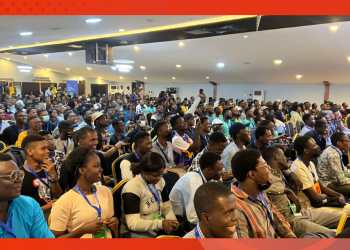The recent suspension of Ezra Olubi, co-founder and CTO of Paystack, following the resurfacing of old, troubling tweets, has dominated tech headlines more than anything else. It has ignited a long-overdue conversation across Africa’s tech ecosystem and beyond.
While the immediate story involves a high-profile leader and serious allegations of misconduct, the underlying themes strike at the core of our digital existence, the profound impact of leadership on mental health and the true meaning of accountability in the modern workplace.
This is a watershed moment. And for anyone building, leading, or working in tech, there are critical lessons to be learned.
The Incident in Brief
In recent days, tweets from Ezra Olubi dating back to 2009-2013 surfaced online. These posts revealed a pattern of inappropriate behaviour, including advocacy for workplace harassment and deeply concerning content. The swift response from Stripe-owned Paystack was a suspension, pending an investigation. This reveals a potential shift in how tech companies, even in fast-growing ecosystems, are now compelled to handle allegations against top-tier leadership.
The Deeper Conversation: A Mental Health Perspective
Beyond the headlines about corporate governance, this situation forces us to confront several critical issues related to our well-being in the digital space.
1. The Reality of Digital Permanence
This scandal reminds us that the internet never forgets. Our digital footprints, especially from the more “unfiltered” early days of social media, are permanent. For professionals and leaders, past online behaviour can resurface with devastating personal and professional consequences. This creates a layer of constant, low-grade anxiety for many that affects mental health across the industry. The pressure to have led a perfectly sanitized online life is immense and often unrealistic, forcing a necessary conversation about growth, context, and genuine contrition.
2. The Ripple Effect of Toxic Leadership
Leadership sets the tone for an entire organization. When leaders, even in their past, normalize harassment or inappropriate behaviour, it can signal a tolerance for such actions. This erodes psychological safety, which is the belief that one will not be punished or humiliated for speaking up with ideas, questions, concerns, or mistakes.
The mental health cost on employees, particularly women and marginalized groups who are often the primary targets of such misconduct, is immeasurable. It leads to increased stress, anxiety, burnout, attrition, and other deeper issues silently crippling innovation and morale.
3. Erosion of Ecosystem Trust
The African tech scene, particularly Nigeria’s, has worked tirelessly to build credibility and attract global investment. Incidents like this damage that hard-earned trust. The collective stress and anxiety this creates for other founders, employees, and investors is significant. It forces a defensive posture, where the entire ecosystem is judged by the failures of a few, creating an environment of uncertainty and fear.
Key Takeaways for a Healthier Tech Culture
So, what can we do? How do we transition from a reactive to a proactive building approach? Here are actionable steps for every tech professional:
-
Conduct a Digital History Audit: Make it a regular practice. Review your old social media posts, comments, and digital interactions. What seemed “edgy” or “funny” a decade ago may not align with your current values or professional standards.
-
Prioritize Psychologically Safe Spaces: Leaders have a non-negotiable responsibility to actively build environments where every team member feels secure, respected, and valued enough to contribute their best work. This means clear codes of conduct, zero-tolerance policies for harassment, and a leadership approach that prioritizes empathy and respect.
-
Implement Robust Mental Health Support: Organizations must go beyond lip service. This means providing access to professional therapy services (EAPs), creating safe channels for reporting issues without fear of retribution, and training managers to recognize signs of workplace-related stress and trauma.
-
Embrace Accountability as a Form of Self-Care: Taking responsibility for past or present harmful actions isn’t just an ethical imperative, but it’s essential for collective mental well-being. True accountability involves apologizing meaningfully, making amends, and demonstrating change. This is a healing process for both the individual and the community they harmed.
READ ALSO: Ezra Olubi Of Paystack May Face Class Action Lawsuit Led by Accuser Amaka Odeluga Obae (MakiSpoke)
Building Better, Building Together
This moment demands introspection from all of us in the tech industry. We must ask ourselves questions. How do we cultivate leaders who are not only technically brilliant but also emotionally intelligent and ethically grounded? What can we do to protect our collective mental health while demanding accountability? How do we ensure our digital and physical workplaces reflect our highest values?
The African tech ecosystem’s response to this crisis will define its character for years to come. Let’s use this painful moment as a catalyst for creating more inclusive, mentally healthy, and ethically sound workplaces where talent can truly thrive.
















